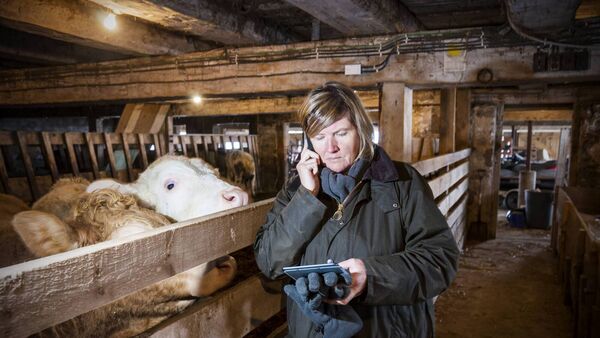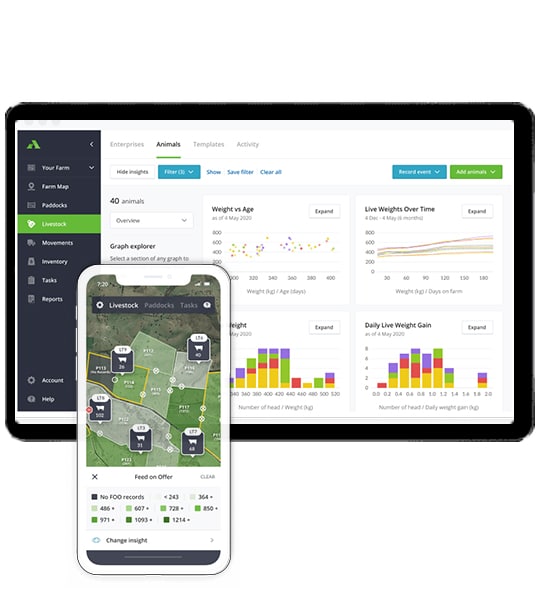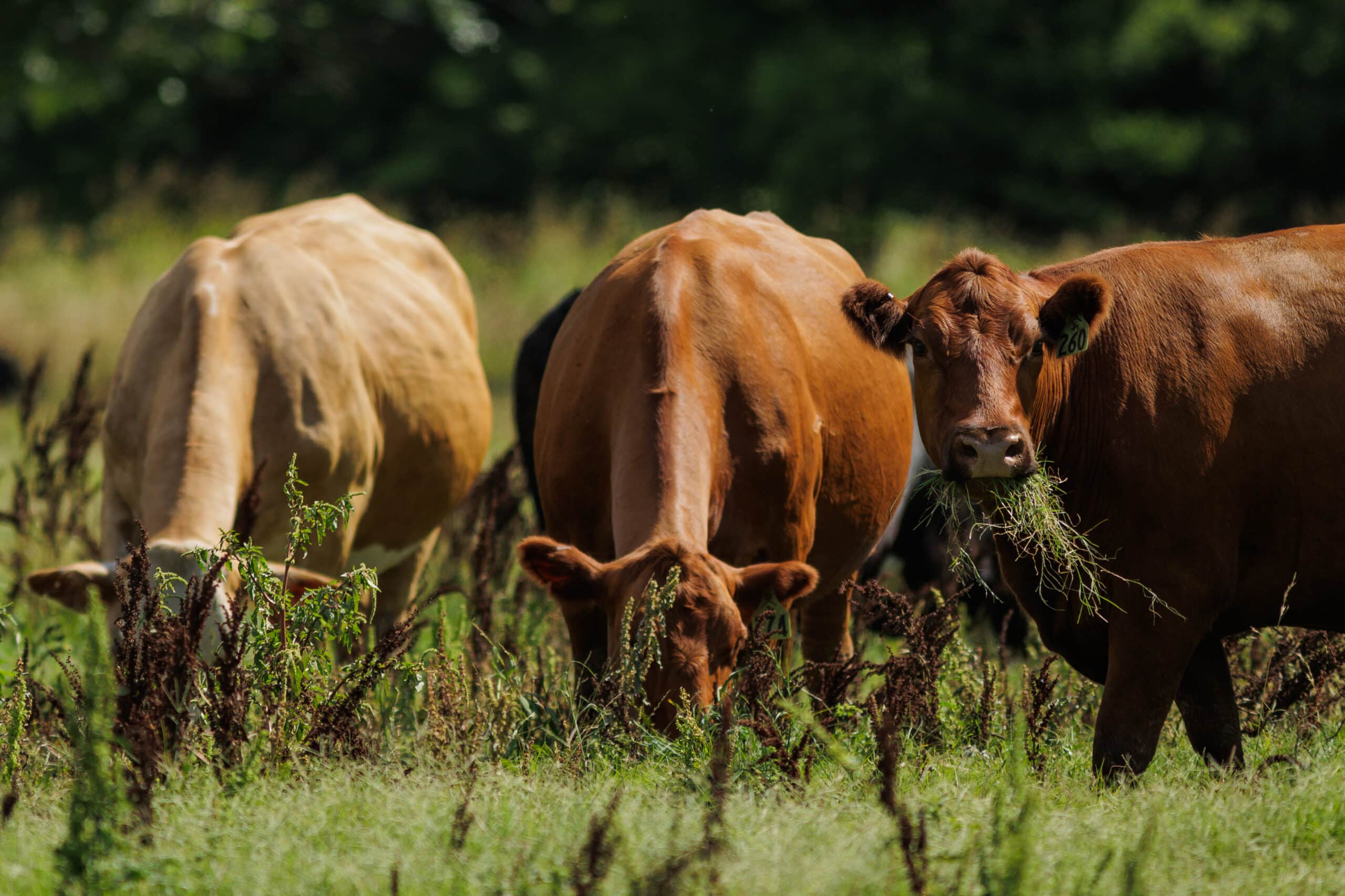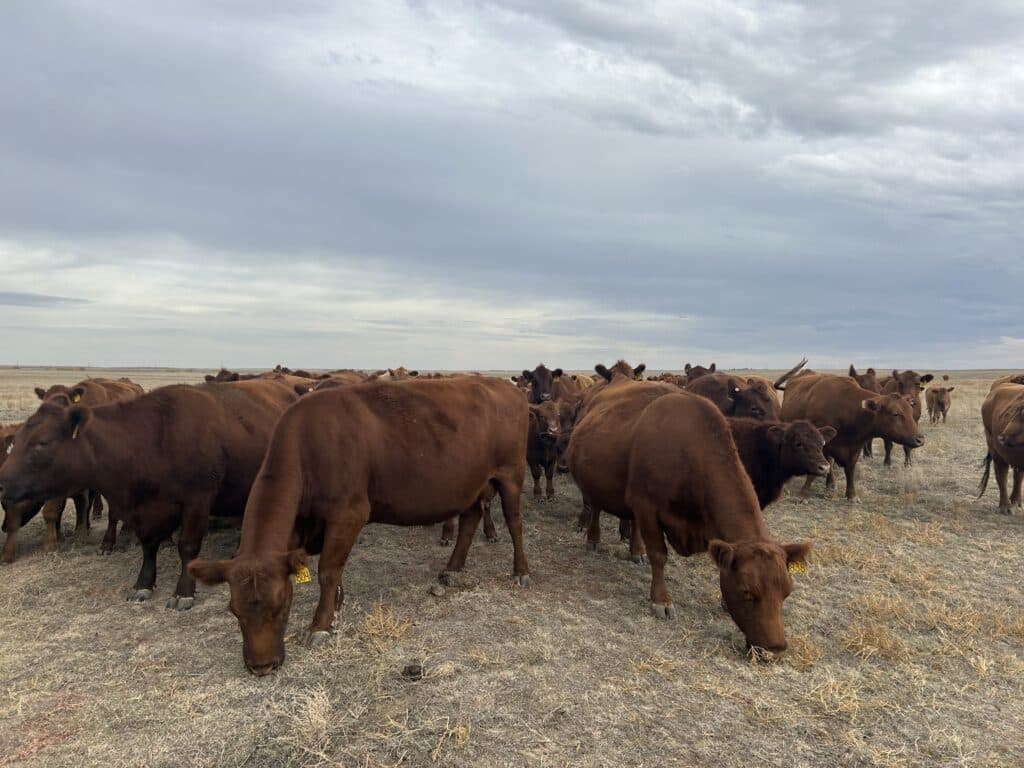Why livestock weight is a unique indicator

Keeping track of your livestock’s performance is paramount to a successful and profitable farm. Weighing animals is one of the simplest methods to drive productivity and profitability. Many farmers are experts at predicting their animals’ weights merely from sight, but accurately weighing livestock can be a real game changer.
If you build weighing your animals into your weekly or fortnightly routine, then it can benefit hugely you and your farm. Through building up historical weight data on your farm, you will be able to spot growth trends, peak weights, and individual animal performance.
Animal health
Weight loss is usually the first sign that something is wrong with an animal. If you have consistent and accurate data for an individual animal, then it is easy and quick to spot when it begins to lose weight. This means you can observe the animal more closely and treat it before it impacts performance and productivity. It could also be a simple problem such as blockage of a feed station that causes deviations in weight. Weighing animals regularly therefore improves the health of your livestock.
Economics
But that’s not all. Spotting problems early on can also reduce the costs to you. Veterinary bills and loss in production can all be reduced when weight loss is picked up early. Ill or injured ruminants are less efficient and therefore their environmental impact is greater per unit of animal product.
Keeping a track of your liveweight gains can also help you to predict the best time for market or slaughter. It means that you will not suffer any penalties for incorrect weights and livestock are more likely to hit their required specifications. Similarly, supply-chain schemes may penalise for cattle not ready within a certain timeframe and finished to a certain weight. Regular monitoring of your stock’s weight ensures you can adjust feed plans to meet the required criteria.
For fertility, through precision weighing, farmers can determine if females are at their optimum weight for pregnancy leading to more successful insemination and better offspring quality.
Understanding the correct feed quantity to offer your livestock is also an area that will cut your losses. Determining the feed conversion rate will help you to achieve the desired growth rates.
Performance statistics

Accurate weights gained from newer technology is a form of precision livestock farming. The accuracy helps farmers to keep track of performance and trace that back through the genetic line. They are able to link weights to the particular sire or dam, thus determining the higher performing genetic lines to breed from again.
There are other aspects of farming that can benefit from these statistics. If farmers are trying a new feed or feeding regime, a new milking system, or housing layout, they can quickly determine its effects on animal performance through their weight losses or gains.
What does it cost to install accurate weighing scales?
By far the most cost efficient and labour efficient weighing scales are those that are electronically linked to an EID reader. Cheaper methods that are more labour intensive include inserting weigh bars underneath your cattle crush. The farmer can then record the weights manually from the display given.
Simpler weigh scales can cost between £500 and £1500. More advanced options with integrated EID readers cost closer to £3000. Placing loadbars underneath your weighing platform or animal crush costs between £1000 and £2000. Newer loadbars are often wireless, which is often more practical in the farming environment and conditions you’ll be weighing in. Software, such as AgriWebb, can store and sort the weigh data collected on your phone or computer. Some software is provided with the hardware, where as many cloud-based providers integrate with a range of hardware.
Return on investment
Farmers can very quickly see a return on their investment. There can be considerable savings made through the accurate weighing of livestock. Through keeping animals in optimal health, economic losses suffered through lameness, veterinary bills, reduced animal productivity, and penalties at the abattoir, are significantly minimised.
Vet bills s can vary wildly from £15 per cow to £130. If your bills are at the higher end of that estimate and you have a herd of 200 cattle, then your annual vet bills can exceed £25,000. Even at the lower end, the costs could still be £3000. So, through investing in the apparatus that allows regular and precise livestock weighing, farmers can save money.
How often should you be weighing your animals?
There is no right or wrong answer here. Obviously the more often you weigh your animals, the greater the data you have for each animal. Also, the quicker you are going to pick up any problems or drops in performance.
It’s often easier to weigh dairy cattle regularly due to their routine. Automatic weighing scales can be placed on their route into the parlour. In this case, farmers are weighing their cows every day, often twice. For sheep and pigs, weights are going to be taken less often.
Some recommend weighing animals as soon as possible after birth, at weaning, and then weighing them at least once a month thereafter. It’s up to individual farmer’s preference. It is important to ‘weigh up’ the cost of time and labour of weighing the animals against the cost of potentially losing profits. So most farmers we speak to start by weighing the cattle at times when they are in the yard and build up from there.
Of course, with any technology, you should always be aware of faults. From software and equipment malfunctions to power cuts and unreadable EID tags. Each of these can lead to incorrect data from time to time. So, it is best to keep an eye on the weight data you are gathering and to look out for any anomalies that could be due to a technical hitch. By regularly weighing and inputting your data, you will be able to identify outliers and investigate whether it is likely to be the animal or the apparatus.
See weighing in action
AgriWebb integrates with a range of hardware. See how the software helps with weighing your livestock here.
To find out more about how AgriWebb can help you be more productive on farm, get in touch.


